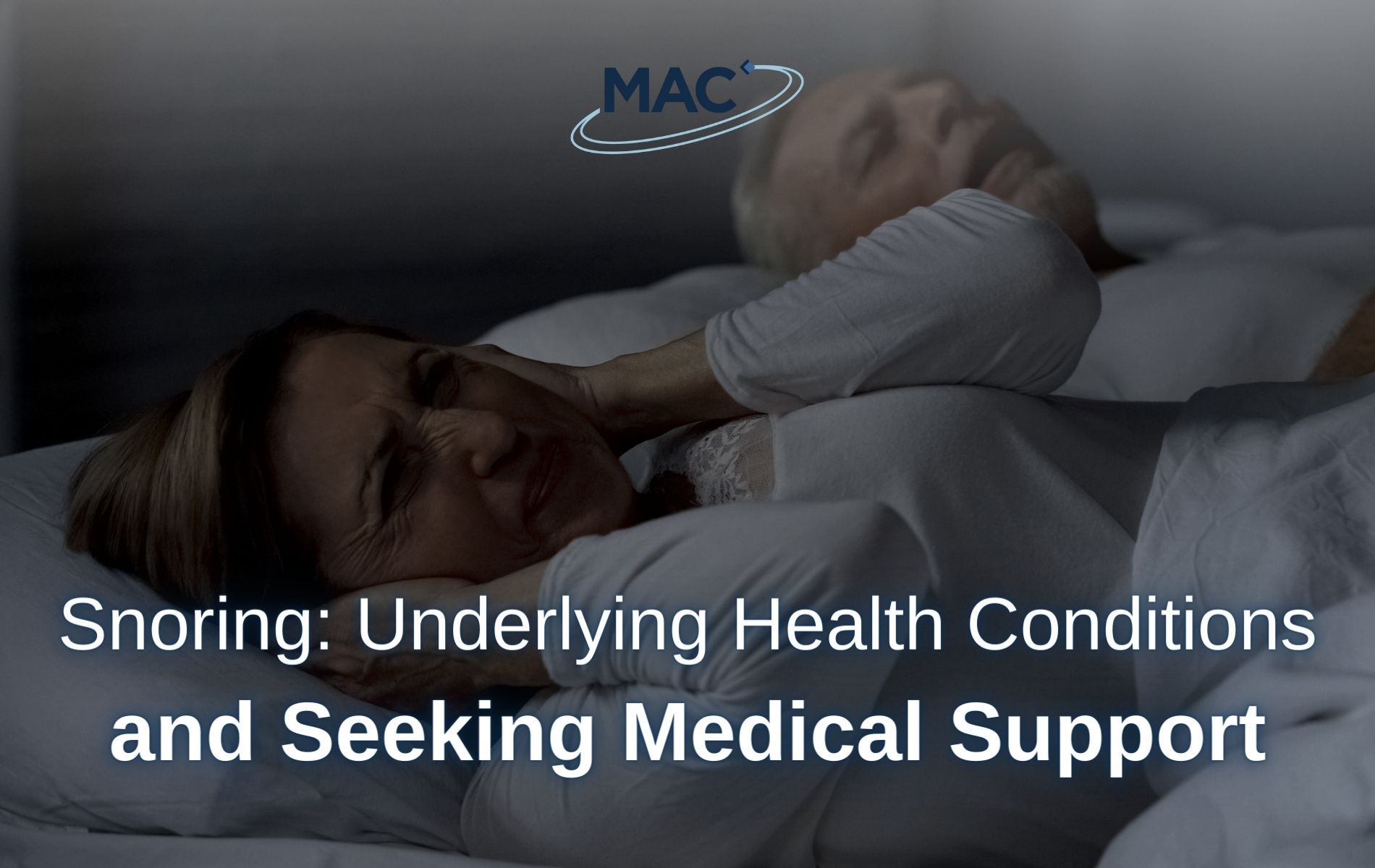During National Stop Snoring Week, it is a crucial time to turn our attention to something that affects millions of individuals worldwide: snoring. While snoring may seem like a mere annoyance, it can be indicative of underlying health conditions that warrant attention. It’s estimated that there around 15 million people in the UK who snore while they sleep1.
Understanding the potential health implications of snoring and the importance of seeking medical support is crucial for promoting better sleep and overall well-being.
What causes snoring?
Snoring occurs when the flow of air through the mouth and nose is partially obstructed during sleep, resulting in vibrations of the throat tissues. While occasional snoring is common and often benign, persistent, or loud snoring, may signal an underlying issue, especially when accompanied by other symptoms such as gasping, choking, or pauses in breathing during sleep (known as sleep apnoea).
Sleep Apnoea
One of the most significant health conditions associated with snoring is obstructive sleep apnoea (OSA). OSA occurs when the muscles in the throat relax during sleep, causing the airway to become partially or completely blocked.
It’s estimated that around 1.5 million adults in the UK are living with OSA, however, 85% of these are undiagnosed and, therefore, untreated2.
The pauses in breathing can result in blood oxygen desaturation and trigger adverse health effects, including fatigue, impaired cognitive function, hypertension, cardiovascular disease, and metabolic disorders.
Underlying Health Conditions and Snoring
Moreover, snoring has been linked to an increased risk of several chronic health conditions. Research suggests that chronic snoring may contribute to the development or exacerbation of cardiovascular diseases such as hypertension, coronary artery disease, and stroke. The repetitive vibrations of snoring can strain the cardiovascular system, leading to elevated blood pressure and vascular damage over time. In a study conducted on people admitted to hospital with coronary artery disease, 70% of those surveyed were living with OSA3.
Additionally, health conditions including obesity, high blood pressure, abnormal cholesterol levels, and insulin resistance are all associated with snoring. Disrupted sleep patterns and oxygen deprivation due to snoring and sleep apnoea can disrupt hormonal regulation, appetite control, and glucose metabolism, contributing to weight gain and metabolic dysregulation. In a survey conducted amongst people living with OSA, 28% of respondents were obese (had a BMI above 30 or above)4.
Snoring and Partners
Furthermore, chronic snoring can impact not only the snorer but also their sleep partner. Bed partners of snorers often experience sleep disturbances, leading to daytime fatigue, irritability, and impaired quality of life. Relationship strain and resentment may also arise from the disruption of shared sleep environments. In a recent survey of 2000 people in the UK in long-term relationships, almost one in 10 people reported that they considered leaving their partner due to their snoring keeping them awake5.
Medical Support for Snoring
Given the potential health implications of snoring, seeking medical support is crucial for accurate diagnosis and appropriate management. A comprehensive evaluation by a healthcare professional, such as a sleep specialist, may involve clinical assessment, sleep studies, and diagnostic imaging to identify underlying causes of snoring and assess its severity.
MAC Clinical Research are here to support those living with sleep issues, such as regular snoring. At our state-of-the-art sleep clinic in Merseyside, we offer sleep assessments to diagnose sleep conditions.
The sleep clinic uses the most up-to-date sleep technology and has five individually designed bedrooms (with ensuite) to optimise the patient experience and diagnostic accuracy. Our experienced sleep technicians and clinical team monitor and analyse the data that is recorded overnight to enable the diagnosis of complex sleep disorders.
To find out more about our sleep clinic and register your details, visit our Sleep Clinic Webpage.
1 British Snoring & Sleep Apnoea Association – Press & Media Information
2 Asthma + Lung UK – Obstructive Sleep Apnoea (OSA)
3 American Thoracic Society – Obstructive Sleep Apnea and Heart Disease
4 University College London Hospitals Biomedical Research Centre – Large increase in UK rates of sleep apnoea and obesity
5 Daily Mail – One in 10 frazzled Britons have considered leaving their partner over their SNORING, study finds




